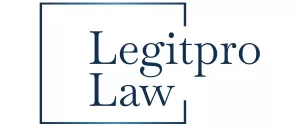- within Corporate/Commercial Law topic(s)
- with Finance and Tax Executives
- with readers working within the Law Firm industries
In a notable effort to strengthen India's professional services sector, the Ministry of Corporate Affairs (MCA) has initiated a public consultation regarding the formation of Indian Multi-Disciplinary Partnership (MDP) firms. Announced on September 17, 20251, through an Office Memorandum, this initiative invites stakeholders to contribute insights on developing a solid framework that facilitates seamless collaboration among a variety of professionals, including chartered accountants, company secretaries, lawyers, and actuaries, within a unified partnership model. The consultation, available on the MCA's website and e-Consultation Module, highlights the government's dedication to nurturing homegrown advisory powerhouses that can compete with global giants such as the Big Four: Deloitte, PwC, EY, and KPMG.
At its essence, the proposed MDP framework seeks to eliminate long-standing regulatory barriers that fragment professional services, enabling firms to provide integrated, comprehensive solutions encompassing auditing, legal advisory, taxation, and consulting. With submissions required by September 30, 2025, this two-week period presents a crucial chance to influence reforms that could transform India's standing in the global consulting landscape, where domestic firms currently audit or advise less than a quarter of Nifty-500 companies. As businesses traverse intricate regulatory environments and pursue international growth, such a framework offers the promise of increased efficiency and innovation, potentially injecting renewed vigour into the economy2.
The Landscape of Professional Services in India
India's professional services sector has long been a vital foundation for economic growth, contributing more than 5% to the GDP and providing employment to millions. Nevertheless, it is still constrained by a fragmented array of regulations that enforce rigid separation among various professions. The Companies Act of 2013, especially Section 141(1)3, sets eligibility standards for auditors that favour established networks, while organisations such as the Institute of Chartered Accountants of India (ICAI), Institute of Company Secretaries of India (ICSI), and Bar Council of India (BCI) uphold parallel licensing systems. This compartmentalisation hinders the development of full-service firms, compelling clients to engage multiple providers for comprehensive solutions, from compliance audits to litigation strategies.
The Ministry of Corporate Affairs' consultation arises within this context, propelled by an Inter-Ministerial Group (IMG) led by the MCA Secretary. Established to foster domestic consulting and auditing ecosystems, the IMG's Background Note underscores how the global supremacy of multinational firms managing 67% of Nifty-500 engagements as of March 2025 impedes local innovation. Recent regulatory adjustments, such as the Reserve Bank of India's 2021 audit limits (capping firms to four Scheduled Commercial Banks and eight Urban Co-operative Banks) and requirements for joint audits in significant financial institutions, have intensified demands for consolidation. However, without MDPs, Indian firms find it difficult to grow, lacking the collective expertise needed to compete in high-stakes tasks such as strategic audits or cross-border mergers.
The ICAI's 2021 MDP guidelines4 signify a cautious advancement, allowing limited collaborations among six professions while omitting crucial fields like insolvency resolution and IT consulting. The MCA's broader vision aims to extend this framework, aligning with national priorities under initiatives like Make in India and Atmanirbhar Bharat, which stress self-sufficiency in high-value services.
Objectives and Rationale Behind the MDP Framework
The main goal of the MDP framework is to develop Indian firms that can compete on a global scale by facilitating resource sharing, knowledge exchange, and brand collaboration across various sectors. By lessening reliance on international networks—which frequently charge high fees and sway purchasing choices—the government aims to create an industry where local companies take a greater share of the $500 billion global consulting market. Key justifications include:
- Holistic Service Delivery: MDPs would provide one-stop solutions, simplifying procedures for intricate transactions such as IPOs or ESG compliance, where legal, financial, and advisory inputs converge.
- Improved International Positioning: Indian companies could build global partnerships, leveraging diaspora connections and cost benefits to enter markets in Southeast Asia and the Middle East.
- Economic Multiplier Effects: More robust domestic firms would enhance job opportunities in specialized fields, encourage research and development in advisory technology (like AI-enhanced compliance tools), and assist MSMEs by offering affordable, comprehensive services.
The consultation clearly connects these objectives to wider reforms, advocating for changes that would allow advertising flexibility for professionals currently restricted under ICAI and BCI regulations and standardized licensing to remove jurisdictional conflicts.
Challenges Addressed in the Consultation
The Background Note straightforwardly details hurdles that sustain the existing situation, offering a guide for focused interventions. At the forefront is the fragmented regulatory environment, where the varied oversight by ICAI, ICSI, BCI, and the Institute of Actuaries of India creates isolated units, hindering collaborative efforts across practices. The procurement processes associated with government tenders further intensify this issue, frequently imposing "global turnover" requirements or mandates for international experience that put emerging Indian firms at a disadvantage5. Additional challenges encompass:
- Branding and Marketing Limitations: Constraints on solicitation reduce visibility, obstructing firms from developing trusted identities comparable to their global counterparts.
- Scalability Challenges: In the absence of MDP structures, partnerships struggle with long-term commitments, lacking frameworks for equity distribution or succession planning.
- Technology and Innovation Shortcomings: Limited partnerships with advanced technology platforms restrict the adoption of proprietary tools, leaving firms dependent on outdated practices.
- Dispute Resolution Gaps: Possible conflicts in multi-professional environments necessitate strong internal arbitration mechanisms, which are currently missing in the existing limited liability partnership (LLP) frameworks.
The consultation explores these issues through a structured questionnaire, gathering insights on safeguards such as ethical firewalls to mitigate conflicts of interest and professional indemnity insurance solutions tailored for MDPs.
Proposed Structure and Reforms
MCA is developing a framework for MDP, envisioning these entities to operate as Limited Liability Partnerships (LLPs) or similar structures under the 2008 Act, with enhanced eligibility criteria for regulated professionals such as chartered accountants, lawyers, and company secretaries. To ensure proficiency, partners are required to fulfil minimum experience thresholds, such as 10 years, and to provide clear disclosures regarding separations between practices to mitigate conflicts of interest. Governance structures will incorporate independent oversight boards to uphold accountability, obligatory rotation policies for essential positions to foster impartiality, and technology-driven audit trails to guarantee adherence to regulations. The framework suggests amending Section 141(1) of the Companies Act to widen auditor qualifications, aligning professional standards to facilitate collaborative marketing initiatives, and introducing tax incentives to promote MDP investments in leadership development academies. Drawing inspiration from international models such as the EU's integrated advisory frameworks and Singapore's adaptable partnership legislation, the MCA underscores non-solicitation tactics, including thought leadership publications, to cultivate brand equity in a natural manner. Stakeholders are encouraged to assess their performance against regions where MDPs have driven a 20-30% increase in local market share, positioning Indian firms for enhanced competitiveness on a global scale6.
Implications for the Professional Ecosystem
If realised, MDPs could instigate a significant shift in the industry, enabling companies to provide enhanced services such as predictive analytics for managing risks or blockchain-verified agreements. For the broader economy, this means a decrease in capital outflows (currently ranging from $10-15 billion each year to overseas consultants) and an increase in innovation, as collaborative teams address new challenges such as sustainable finance and data privacy.
Professionals are likely to benefit from varied revenue sources and the sharing of skills, while the sector's overall ability to withstand disruptions whether from cyber threats or geopolitical changes would be reinforced. Importantly, the framework tackles equity issues, allowing smaller firms to unite into MDPs while maintaining their independence, thereby creating equal access to global opportunities.
Submitting Comments
The MCA has refined the process of participation to foster extensive input. Responses are expected to tackle the 15 questions outlined in the Background Note, which range from specifics of amendments to timelines for implementation. Submissions can be made through the e-Consultation Module at www.mca.gov.in or via email to so-pimca@gov.in, using the subject line "Comments on Indian MDP Firms." Anonymity is not permitted, though confidentiality protections are guaranteed for sensitive information. Early involvement is encouraged, as IMG discussions will begin after the deadline, potentially accelerating reforms by mid-2026. By seeking collective insights, it not only tackles entrenched challenges but also paves the way for Indian firms to become global leaders. As the deadline nears, proactive input will be crucial in developing a framework that balances innovation with integrity, ultimately advancing India's professional services on the international stage. In a time of swift globalization, this initiative represents more than mere reform rather it is a strategic plan for sustained competitiveness.
Footnotes
1. MCA invites public comments on establishment of Indian Multidisciplinary Partnership (MDP) firms. (n.d.).
2. ET Bureau. (2025, September 17). MCA seeks stakeholder inputs on creating multi-disciplinary partnership firms. The Economic Times.
3. Section 141.Eligibility, qualifications and disqualifications of auditors | Companies Act Integrated Ready Reckoner|Companies Act 2013|CAIRR. (n.d.).
4. ICAI - the Institute of Chartered Accountants of India. (n.d.). ICAI.
5. MCA seeks comments on Indian Multi-Disciplinary Partnership Framework. (2025, September 18). Lexology.
6. ibid
The content of this article is intended to provide a general guide to the subject matter. Specialist advice should be sought about your specific circumstances.


